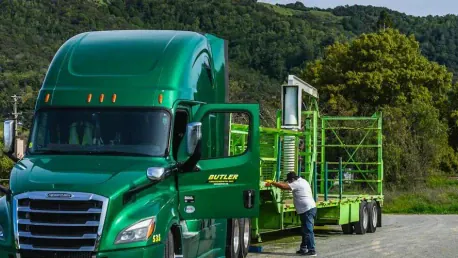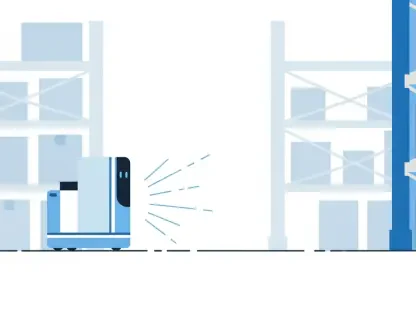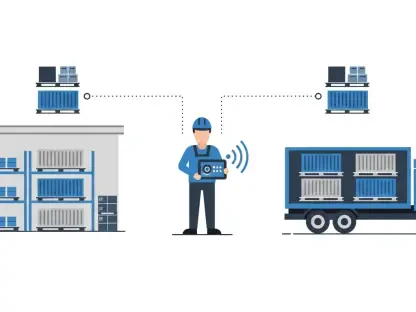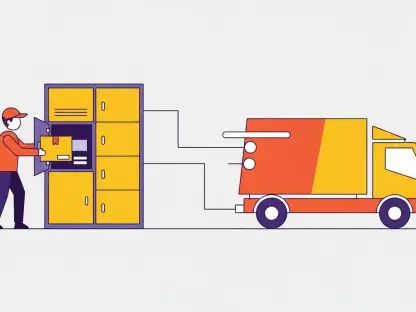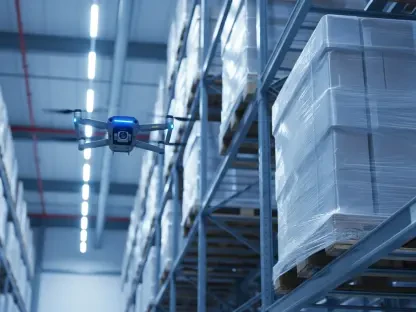Huzhou, a city in northern Zhejiang Province within the Yangtze River Delta in East China, is rapidly emerging as a pioneering hub in the logistics sector. Known as the “logistics valley” of China, Huzhou has become a symbol of innovation and efficiency, leveraging advanced technologies and sustainable practices to redefine logistics. As the only pilot demonstration city for green and smart manufacturing in China, Huzhou exemplifies cutting-edge developments in the realm of smart and green logistics. This designation is not just a title but a testament to the city’s strategic initiatives, including the implementation of unmanned equipment, smart operating systems, and sustainable logistics solutions. By placing a strong focus on technological advancement and green practices, Huzhou is setting new standards in the logistics industry, both locally and globally.
Green and Smart Logistics Innovations
Huzhou has made significant progress by integrating green and smart technologies into its logistics sector. The city’s advancements in unmanned equipment and intelligent logistics systems are noteworthy. An unmanned warehouse spanning 20,000 square meters in Huzhou uses a smart warehousing system that can manage 600 tons of goods daily from an inventory of 40,000 stocks. This high-tech approach optimizes storage and streamlines the entire logistics process, making it more efficient and environmentally friendly. Such innovations are critical as they pave the way for more sustainable practices in logistics, reducing waste and energy consumption.
Local enterprises play a crucial role in these developments, contributing immensely to Huzhou’s reputation as a leader in smart logistics. One company, in particular, has held the top global position for sales of light and small delivery vehicle forklifts for 18 consecutive years. Recently, this company has shifted to a fully smart operating model, utilizing advanced laser positioning technology. This innovation has led to efficiency gains by matching the closest vehicle to specific tasks, ultimately reducing the need for forklifts from 50 to 40. This reduction in equipment not only cuts costs but also lowers environmental impact, demonstrating how smart logistics can benefit both the economy and the environment.
Economic and Environmental Impact
The integration of intelligent logistics systems in Huzhou has contributed to both economic and environmental benefits. These smart systems enhance efficiency and lead to significant economic savings, which is essential for businesses looking to maximize their profitability while minimizing their environmental footprint. For example, the deployment of unmanned equipment in logistics operations has been executed in over 2,000 projects across more than 120 countries and regions. This global reach underscores the impact and scalability of Huzhou’s logistics technology, illustrating its potential to revolutionize logistics practices worldwide.
Huzhou’s commitment to sustainable development is evident through its focus on green logistics. By prioritizing environmentally friendly practices, the city aims to foster new, high-quality productive forces. This approach has attracted numerous businesses to Huzhou, with around 500 enterprises now part of the intelligent logistics equipment industry chain. The impressive industry concentration ratio of over 90% highlights Huzhou’s central role in the sector, making it a critical hub for logistics innovation. These strides not only solidify Huzhou’s position as a leader in green logistics but also set a precedent for other cities to follow.
Integration of Technology and Efficiency
Technological innovation is the driving force behind Huzhou’s logistics sector. The use of smart systems and unmanned equipment represents the city’s overarching trend of integrating technology to boost operational efficiency and productivity. This focus on technology is not just about automation but also about smarter logistics management. The intelligent logistics system enables better resource allocation, reducing downtime and increasing throughput. By implementing these advanced systems, Huzhou has managed to set new benchmarks in the logistics industry.
Huzhou’s technological prowess is not limited to local developments but has a ripple effect on a global scale. Local companies specializing in smart logistics consistently push the envelope, ensuring that Huzhou stays at the forefront of logistics innovation. The advancements made by these enterprises are a testament to the city’s commitment to maintaining its leadership in smart logistics. By continually investing in research and development, Huzhou ensures that its logistics sector remains competitive and adaptive to the ever-evolving demands of the global market.
Sustainability and Environmental Concerns
Huzhou’s logistics sector strongly emphasizes sustainability, reflecting a broader consensus on the need for environmental stewardship. The city’s green logistics initiatives are a testament to its commitment to balancing economic growth with ecological responsibility. By using energy-efficient technologies and reducing emissions, Huzhou sets a standard for other cities to follow. Sustainability in Huzhou goes hand in hand with innovation, as the city’s green logistics systems are designed to minimize environmental impact while enhancing operational efficiency.
This dual focus on sustainability and efficiency ensures that Huzhou’s logistics sector remains both competitive and sustainable, providing a blueprint for future logistics developments. Huzhou’s initiatives in green logistics serve as a model for other cities looking to adopt more environmentally responsible practices. The city’s focus on integrating eco-friendly technologies into its logistics operations not only benefits the environment but also enhances its appeal to companies and investors who prioritize sustainability.
Economic Growth and Market Penetration
Huzhou’s advancements in logistics benefit local development and significantly impact the regional and global economy. The export of mechanical and electrical products from the Yangtze River Delta region, where Huzhou is a key player, reached 3.3 trillion yuan ($460.6 billion) in the first seven months of the reported year. This figure represents a 7.7% increase year-on-year, accounting for 59.6% of China’s total exports. These impressive statistics highlight the vital role that Huzhou’s logistics sector plays in the national and global economy.
The city’s focus on smart and green logistics has enabled it to penetrate markets worldwide, showcasing its technological prowess and economic significance. Huzhou’s strategic initiatives in logistics have contributed to its economic growth, making it an essential player in the global logistics landscape. The city’s ability to leverage technology and sustainability for economic gains sets a precedent for other regions looking to enhance their logistics capabilities.
Global Reach of Huzhou’s Logistics Innovations
The integration of intelligent logistics systems in Huzhou has led to both economic and environmental gains. These advanced systems boost efficiency and result in substantial cost savings, which is vital for businesses striving to enhance profitability while reducing their ecological impact. For instance, unmanned equipment in logistics has been deployed in over 2,000 projects across more than 120 countries and regions. This global presence highlights the influence and scalability of Huzhou’s logistics technology, showing its potential to transform logistics practices worldwide.
Huzhou’s dedication to sustainable development is evident in its emphasis on green logistics. By adopting eco-friendly practices, the city aims to nurture new, high-quality productive forces. This strategy has attracted around 500 businesses to Huzhou, integrating them into the intelligent logistics equipment industry chain. With an industry concentration ratio exceeding 90%, Huzhou emerges as a key player in the sector, making it an essential hub for logistics innovation. These advancements not only confirm Huzhou’s status as a leader in green logistics but also set a benchmark for other cities to emulate.
